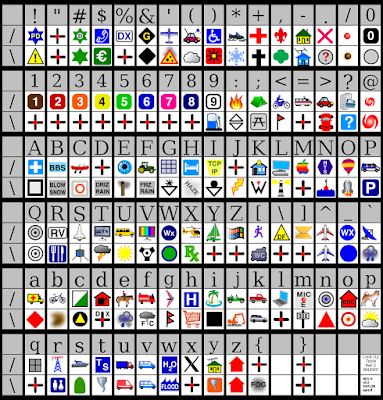Santa Clara ARES Drill Yesterday
Yesterday I spent all morning at my first Santa Clara County ARES drill. ARES is the Amateur Radio Emergency Service. We're the people that come in when a natural disaster strikes and knocks out the entire communications infrastructure, or more often, the panic after a natural disaster that completely overloads what is left of the communications infrastructure.
Yesterday the drill was practice so when the time comes, we'll be more prepared to respond effectively, and to become familiar with the Incident Command System for dealing with emergencies. Since it was my first time, I got paired with two other Mutual Aid Communicators (MACs) on my team. They were pretty cool, and let me do most of the radio work, which at times felt like trying to keep 3 balls in the air and listen in on someone else's conversation all at the same time.
There were three parts to the drill.
Yesterday the drill was practice so when the time comes, we'll be more prepared to respond effectively, and to become familiar with the Incident Command System for dealing with emergencies. Since it was my first time, I got paired with two other Mutual Aid Communicators (MACs) on my team. They were pretty cool, and let me do most of the radio work, which at times felt like trying to keep 3 balls in the air and listen in on someone else's conversation all at the same time.
There were three parts to the drill.
- Windshield damage survey - This is a very quick, high brow survey of how much damaged was suffered in an area. We have a handy dandy form that you write the street name on and put counts for the number of houses damaged - minor or major, destroyed, people injured, people killed, loose animals, etc etc. Nothing
- Missing Person search - We were given a very typical mock-up flyer of a missing person, who was one of the guy's son, who rode around all day on his bike and we tried to find him. By chance, one of the guys on our team (Team 1) was his father, so Tom was able to have us check his normal beating grounds, which ended up not helping. We did eventually find his, which would make us one of only two teams that I know of, of at least eight teams dispatched in the area. I picked him out from across Panama Park, only because he was standing in the crowd for a 3rd grade soccer game, so a 17 year old stood out pretty well. For someone to be watching a soccer game on a bike, then turn around and start biking away was what originally brought him to my attention, then I got a positive ID on him and we trailed him for 2 minutes before finally making contact (which we wouldn't do in a real search, FYI).
- Packet radio - The final practice session was sending a packet message, which is pretty much just email over the radio at 1.2kBps. I've already done this before, so it was nothing new, although finally getting to use a real TNC (Terminal Node Controller) instead of the ridiculous hacked together manual setup I have was refreshing.
Overall the day was very successful, and it did take awhile to get in the swing of things. I goofed a few times, forgetting to check into resource nets, etc, but in the final debrief with the Incident Commander, they commented that I did exceptionally well for a first timer. There is a possibility that next year I might get some practice as a net controller, who stays in Base and directs the deployed teams by radio.
After this weekend, I feel a little better about Amateur radio. And the resource net mangled my call sign again. I just can't win.

